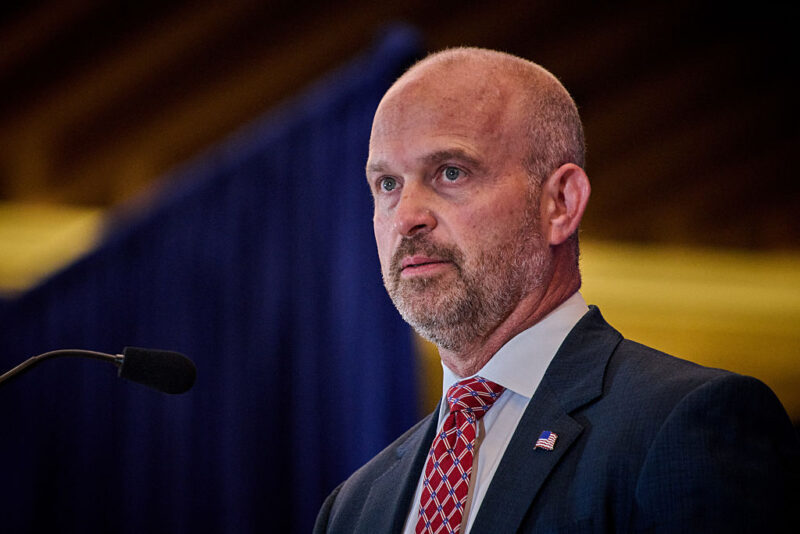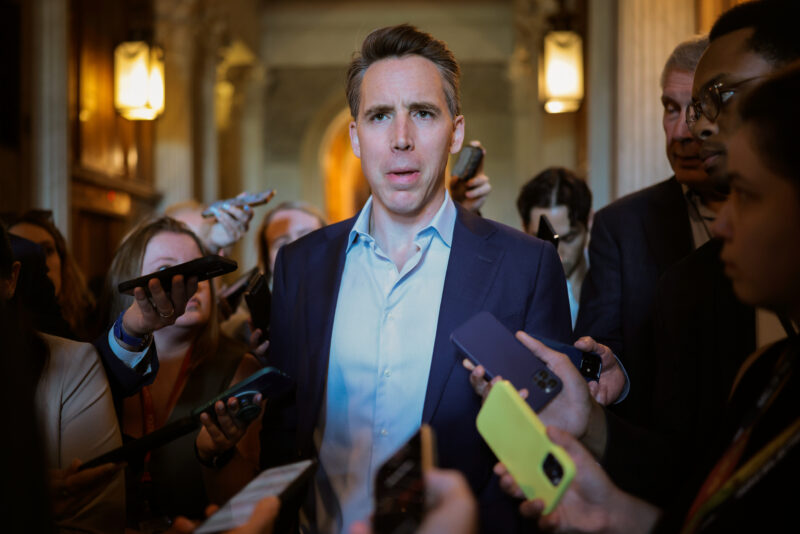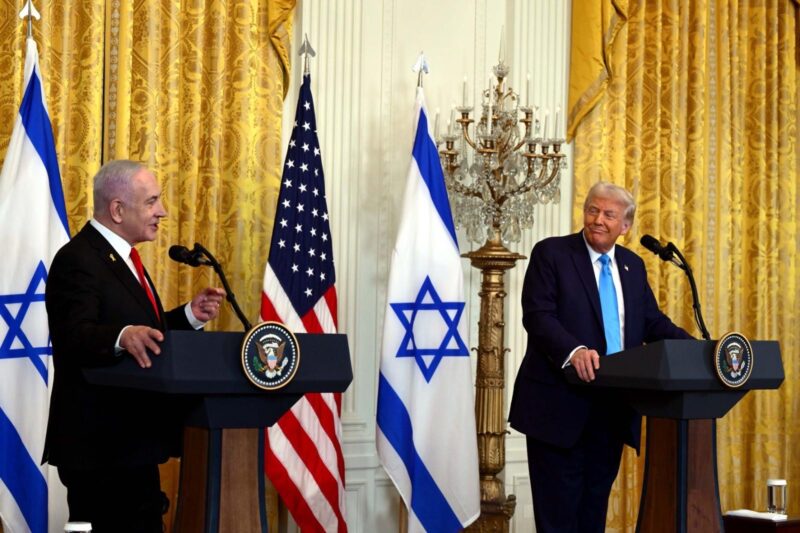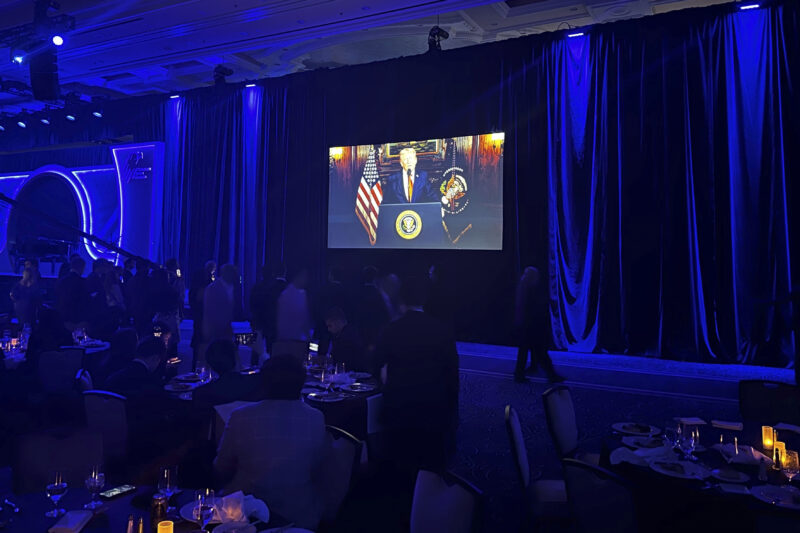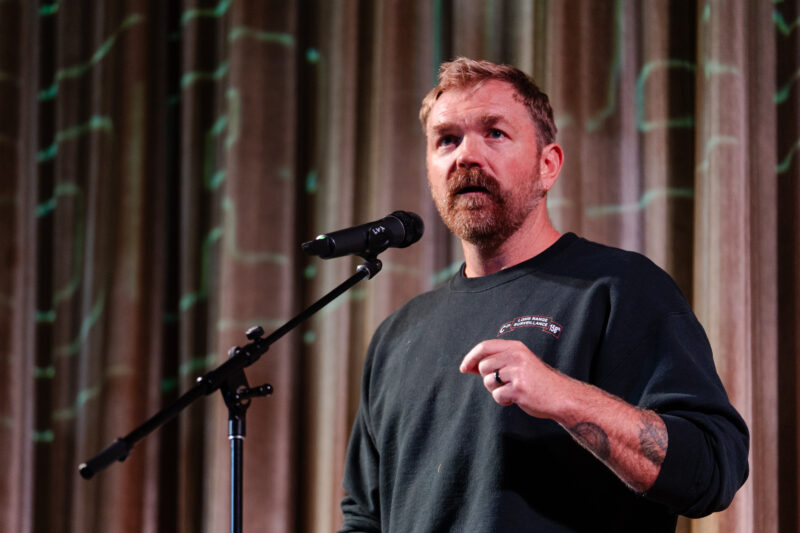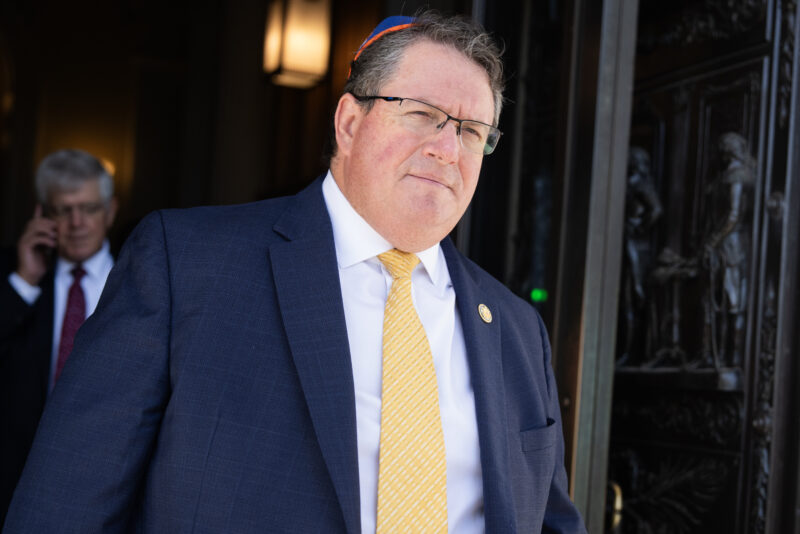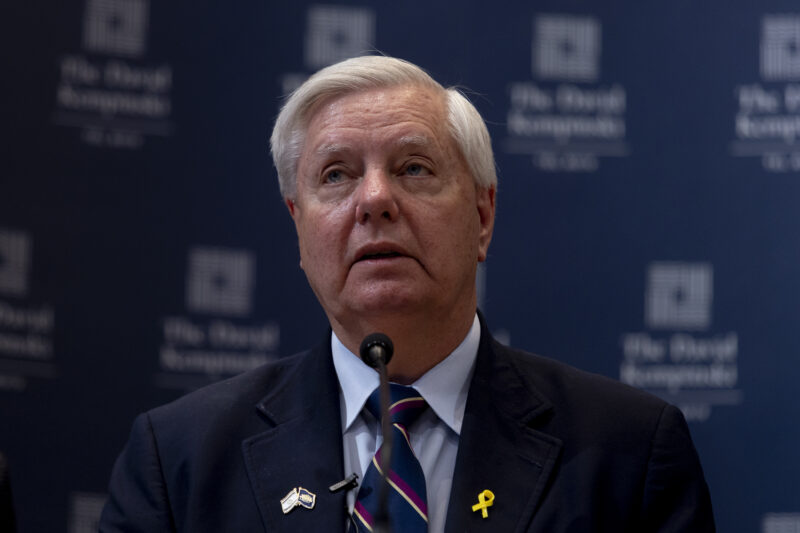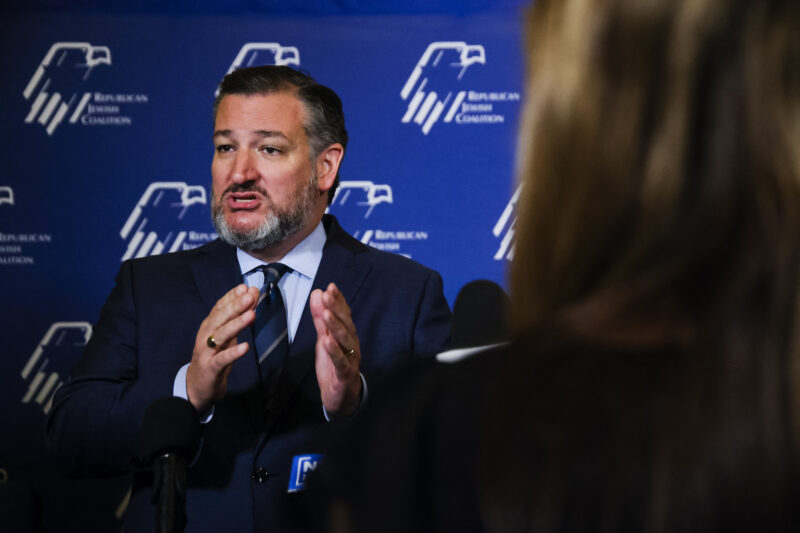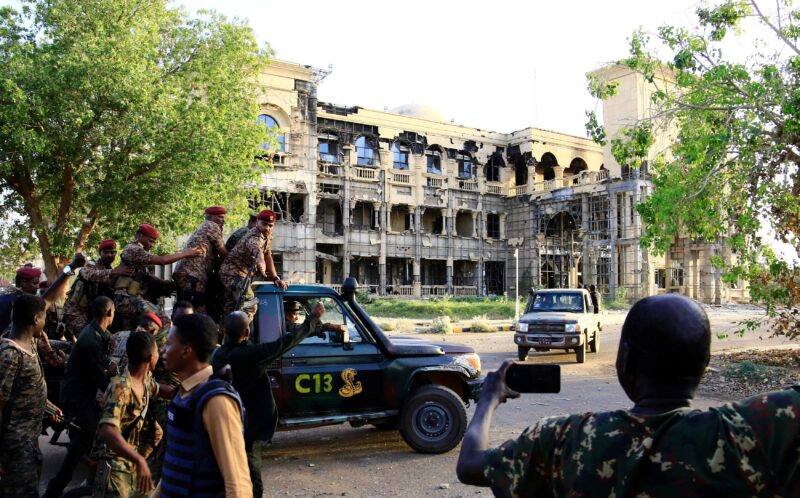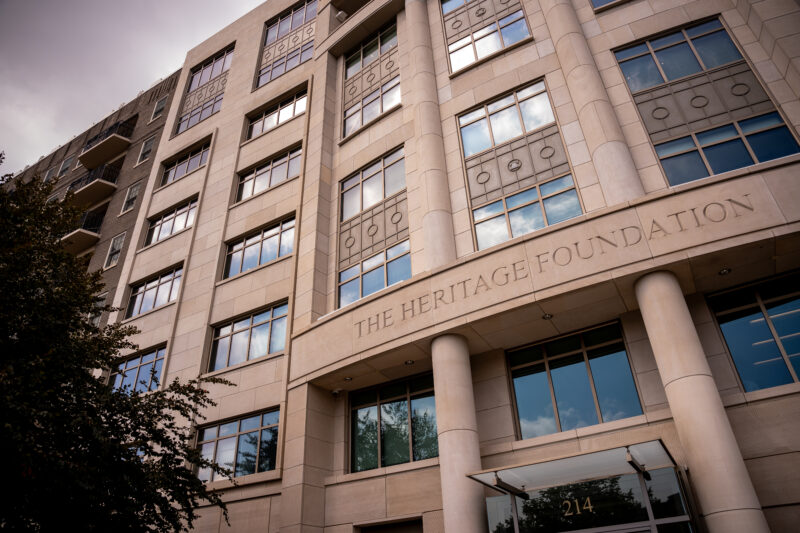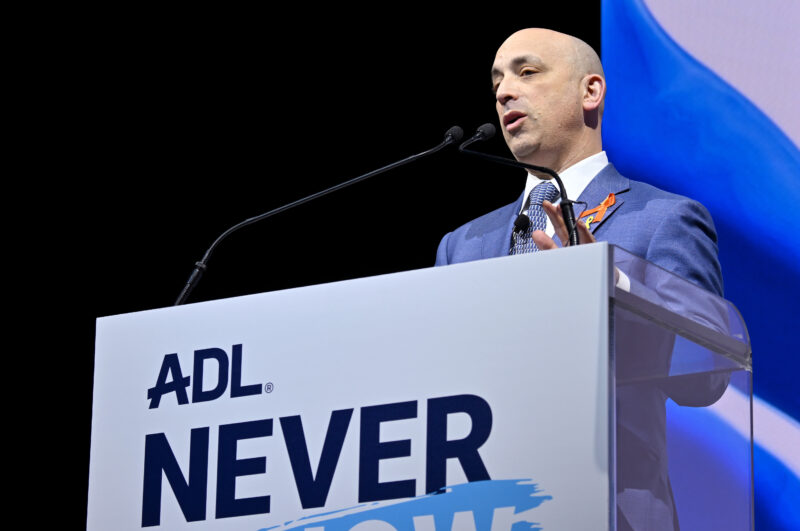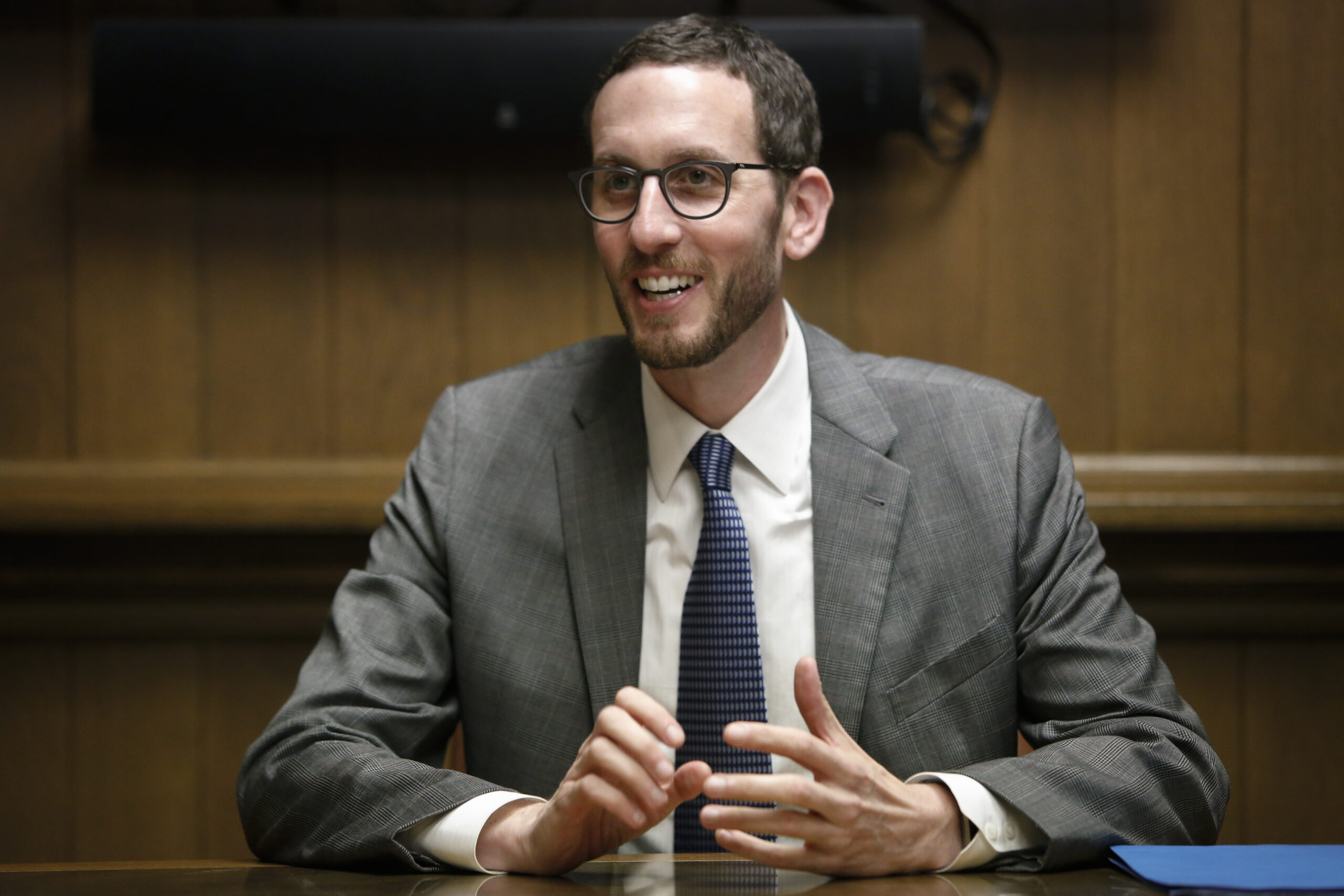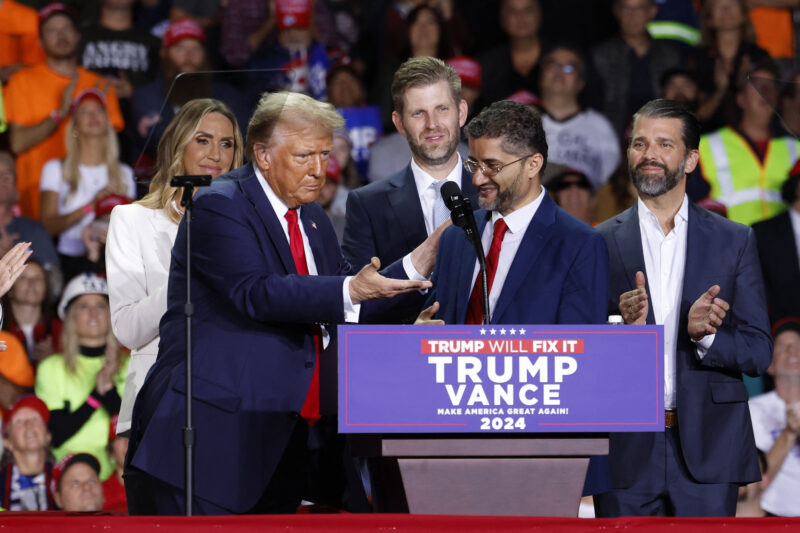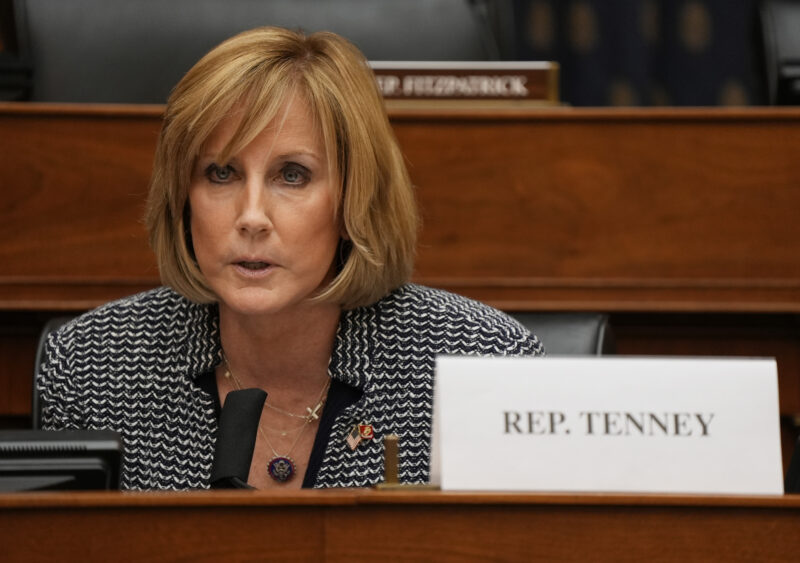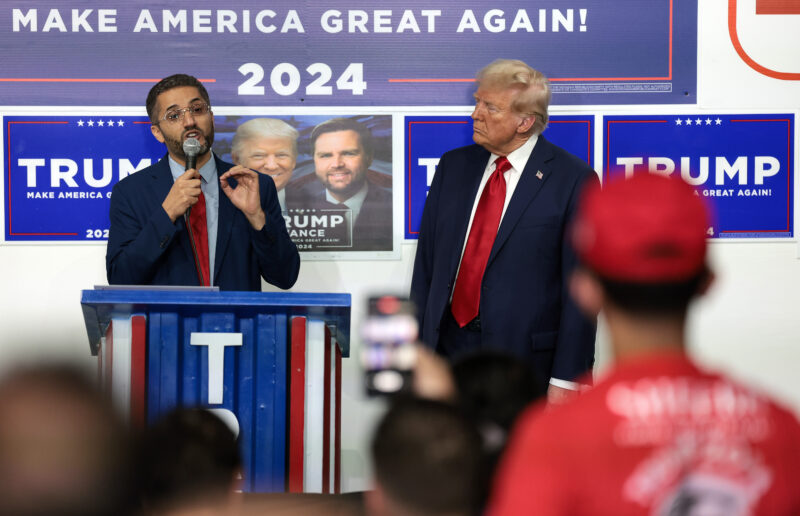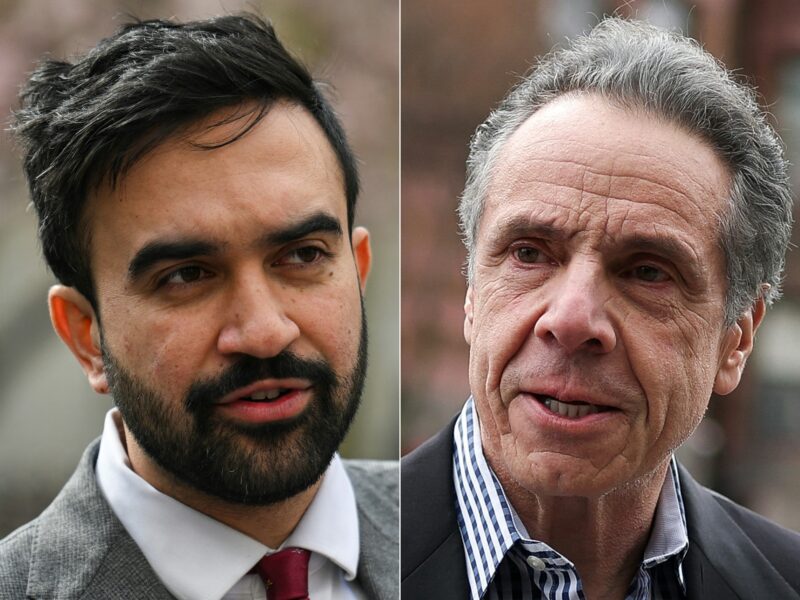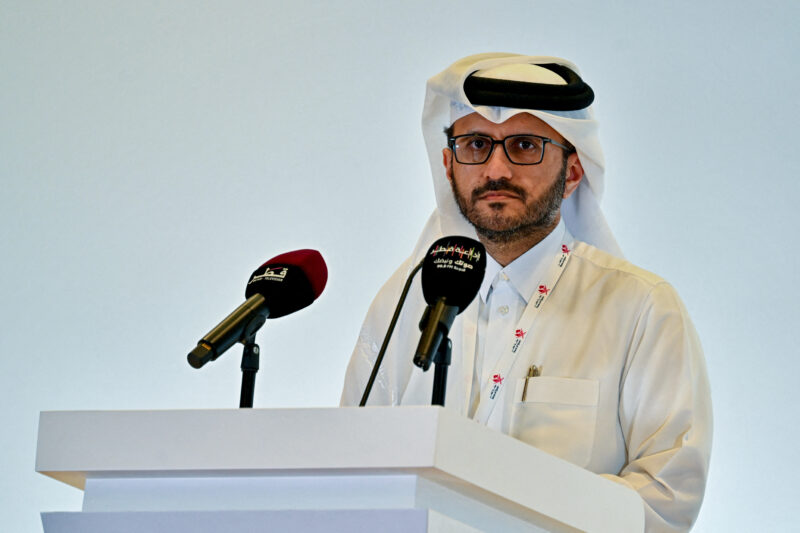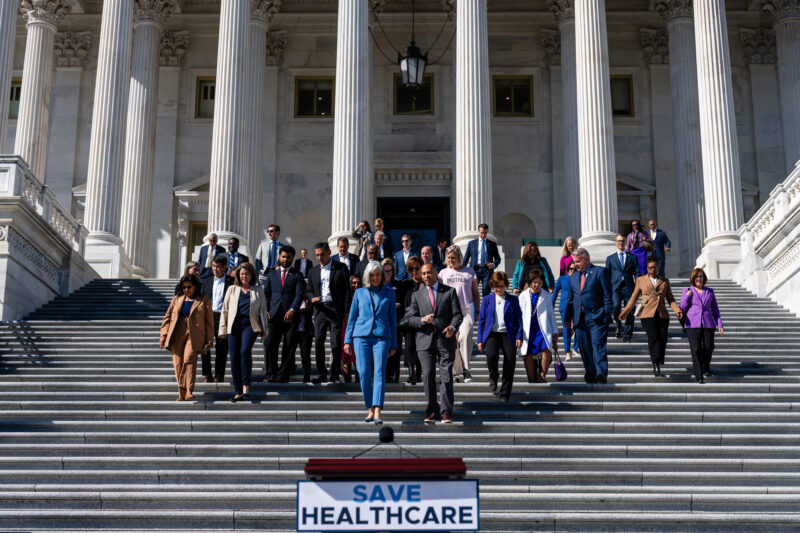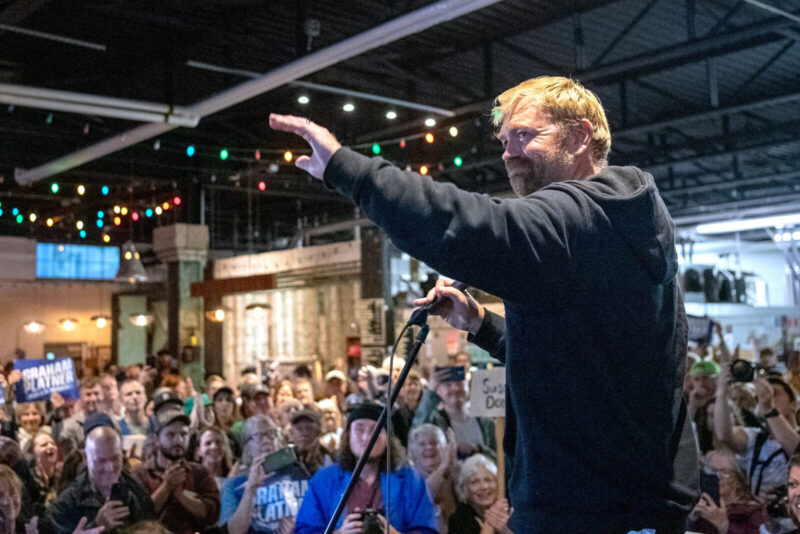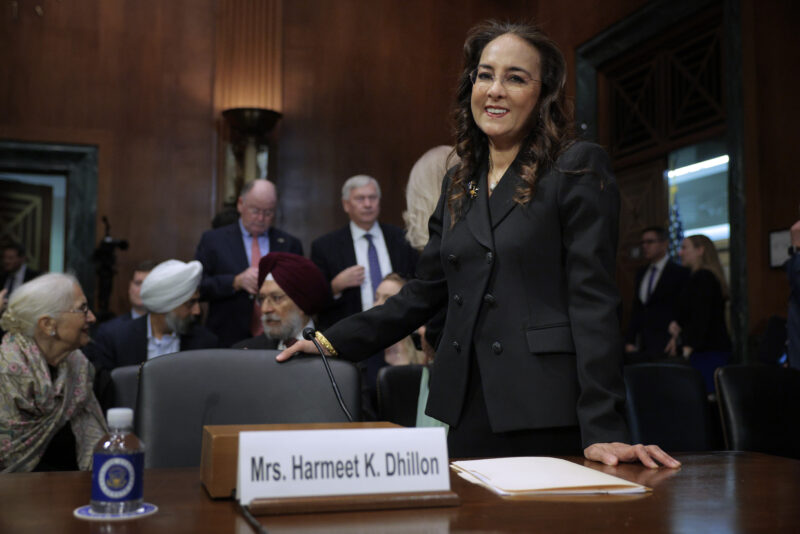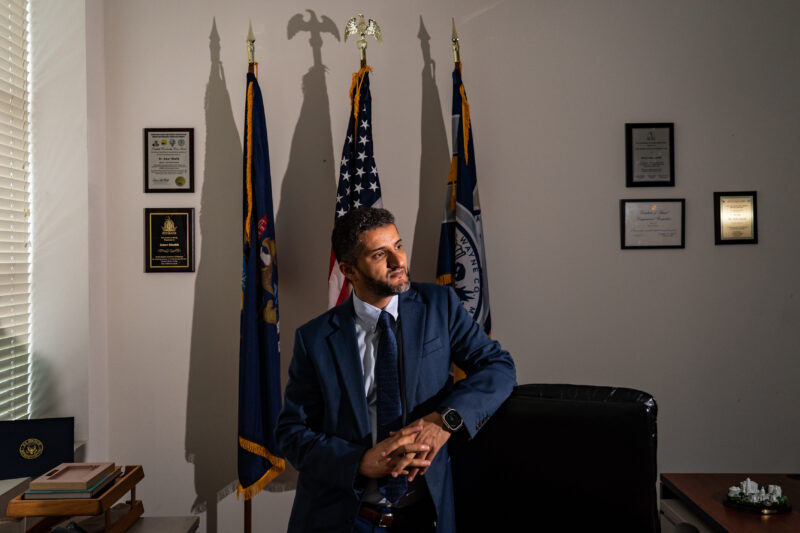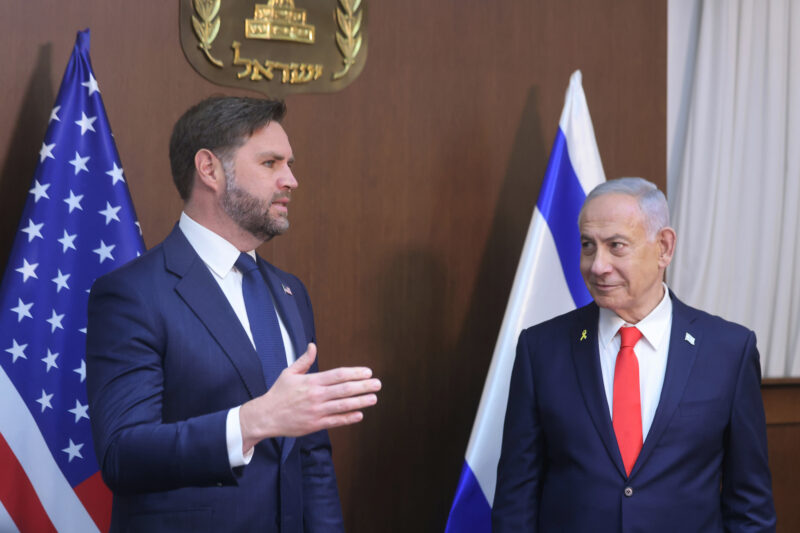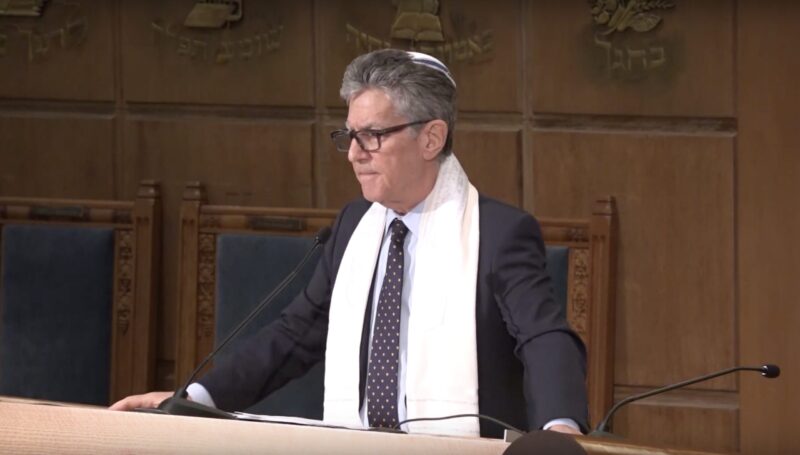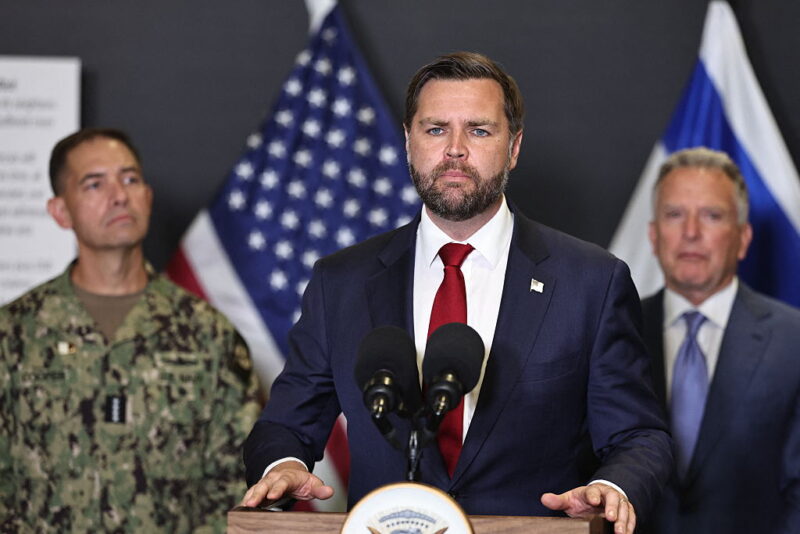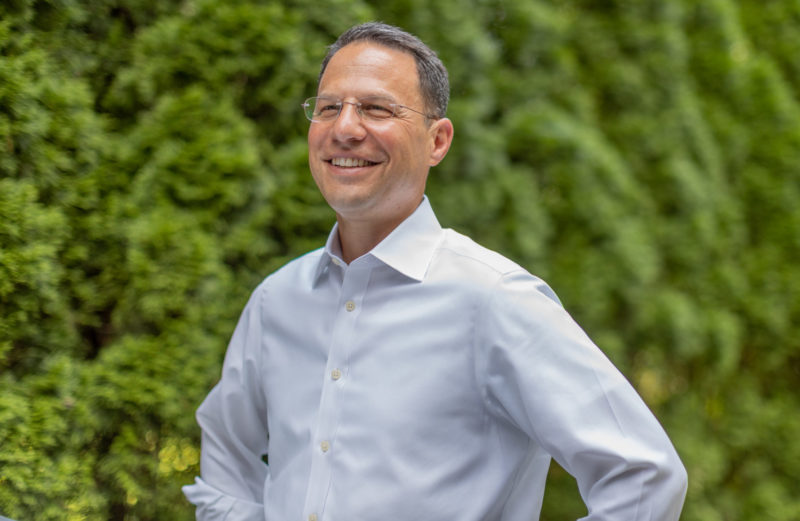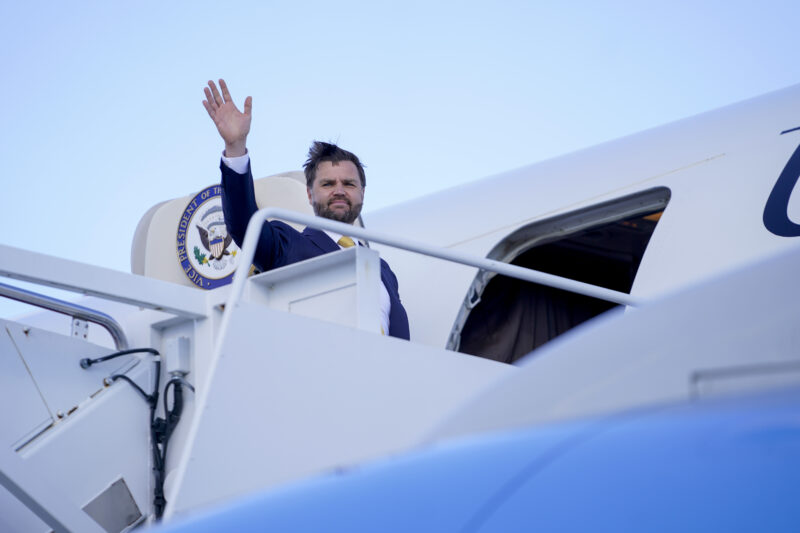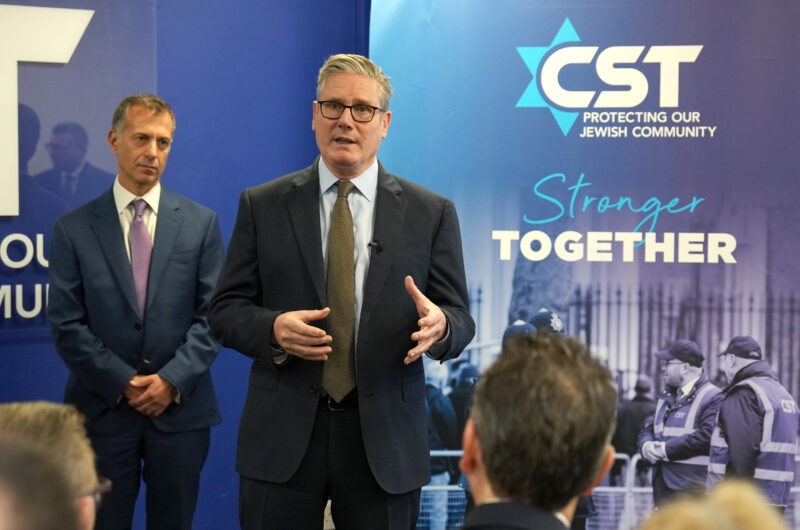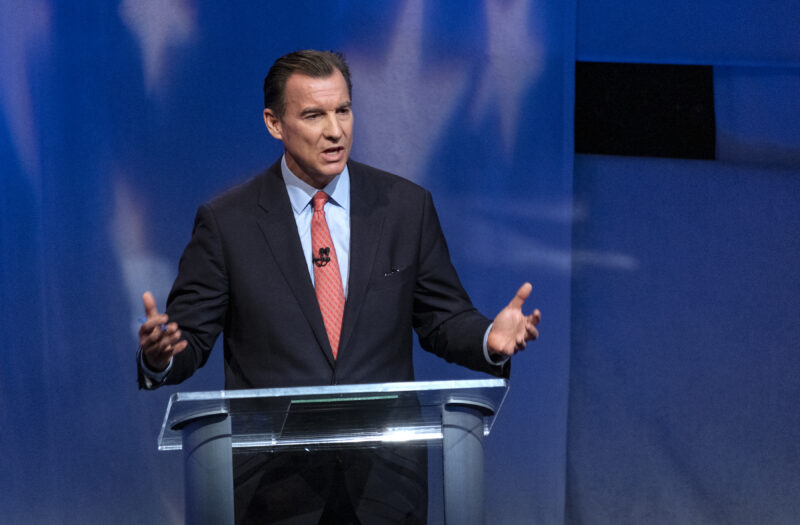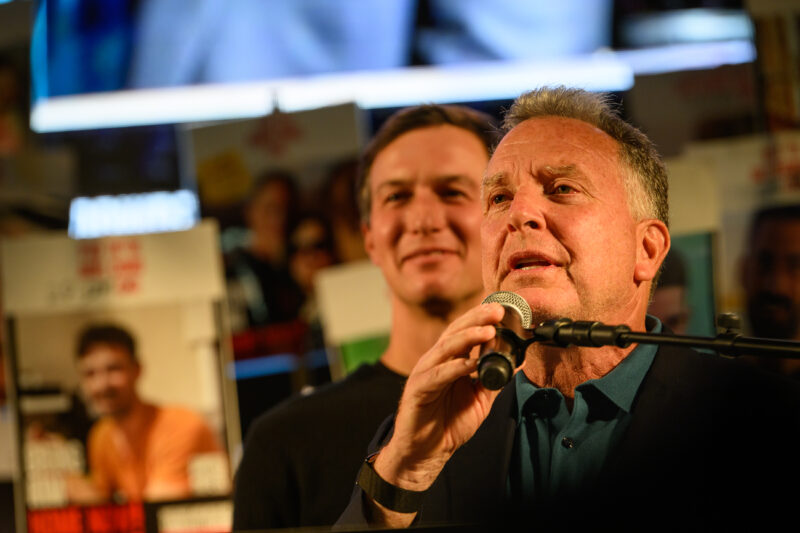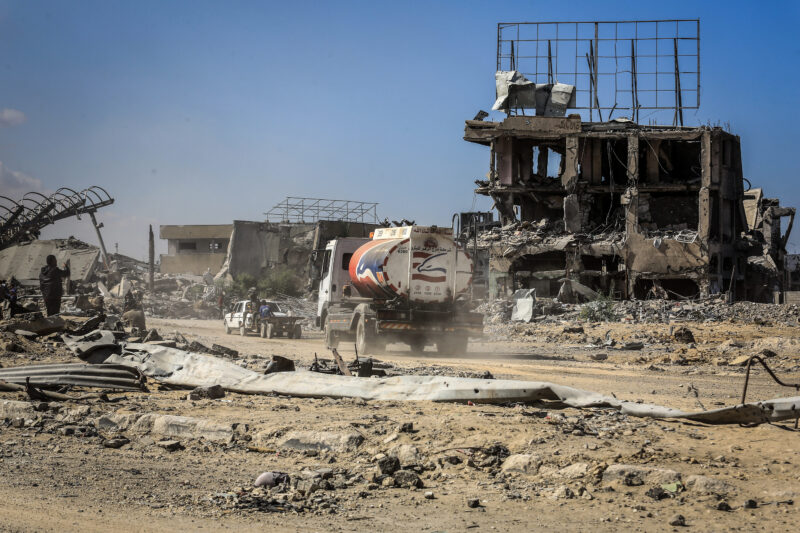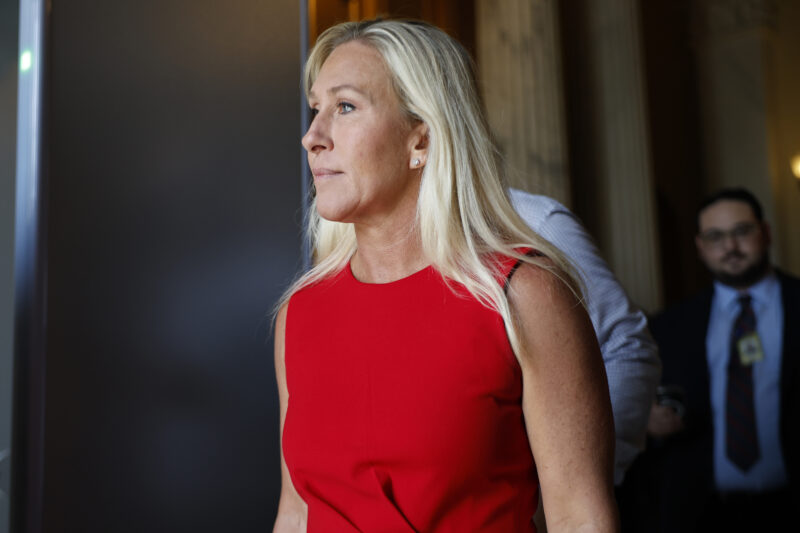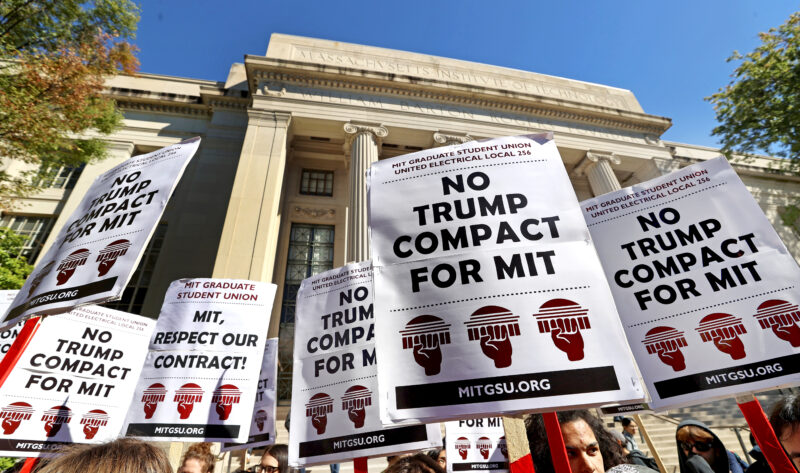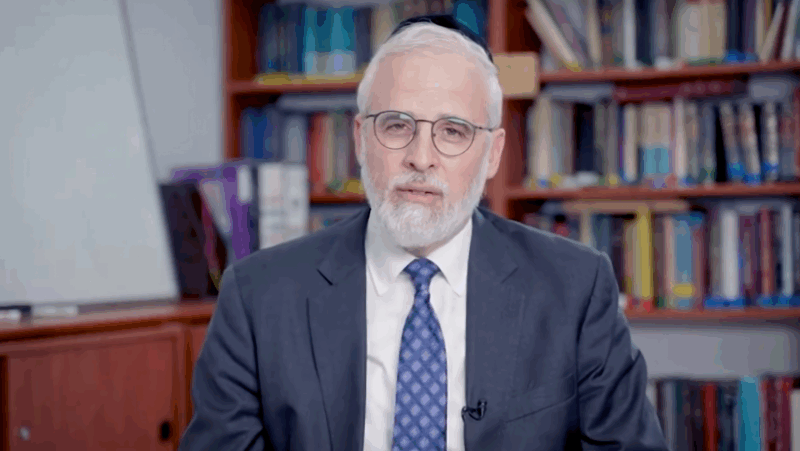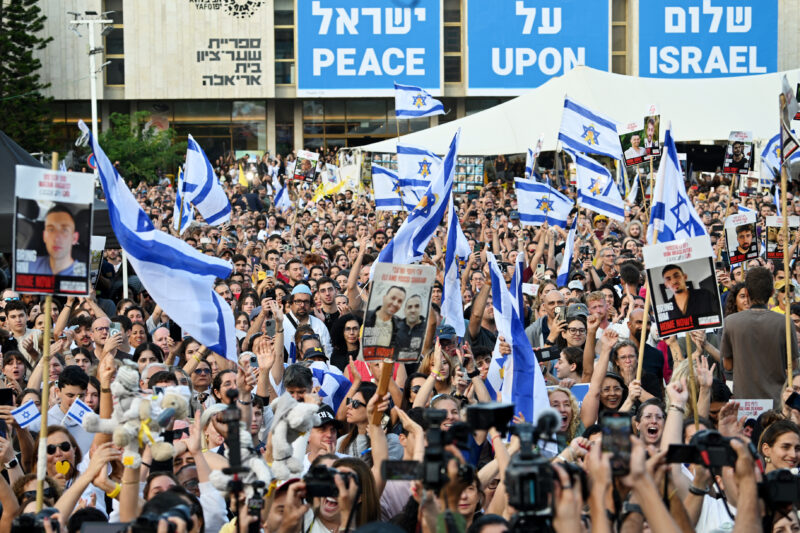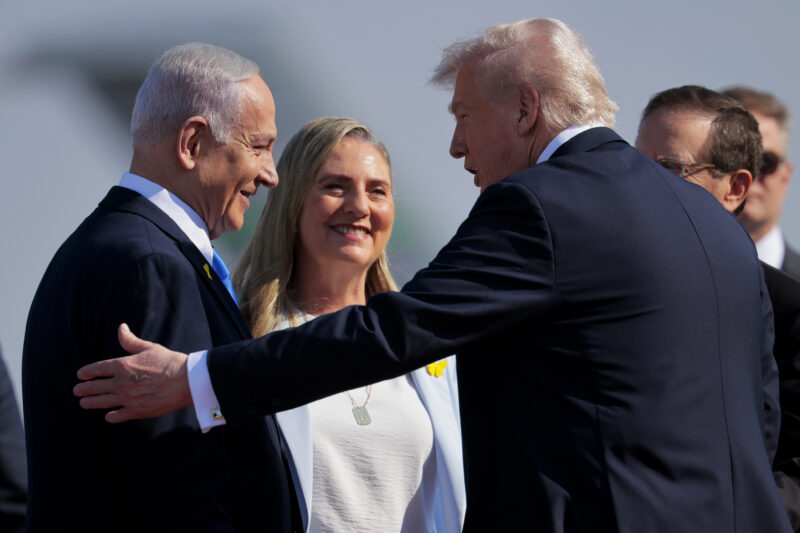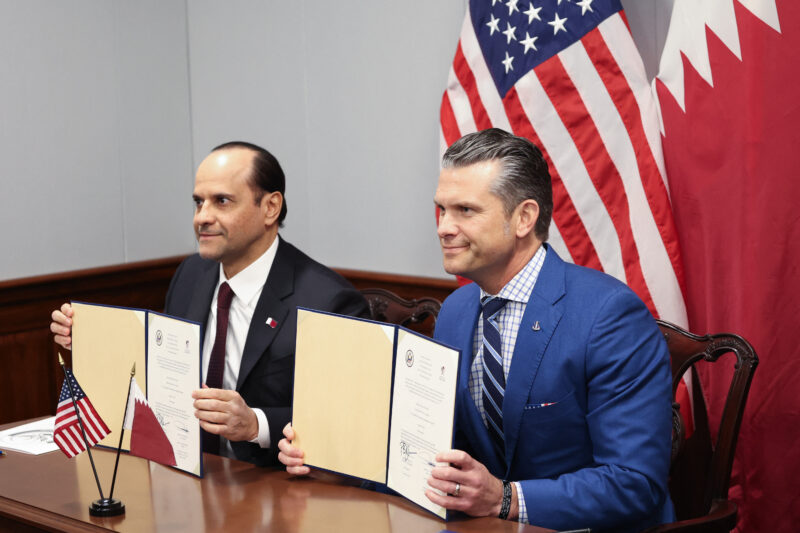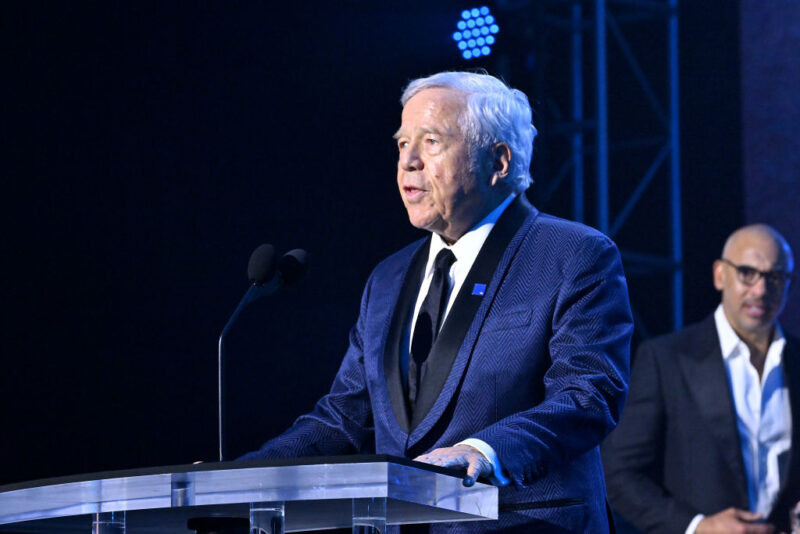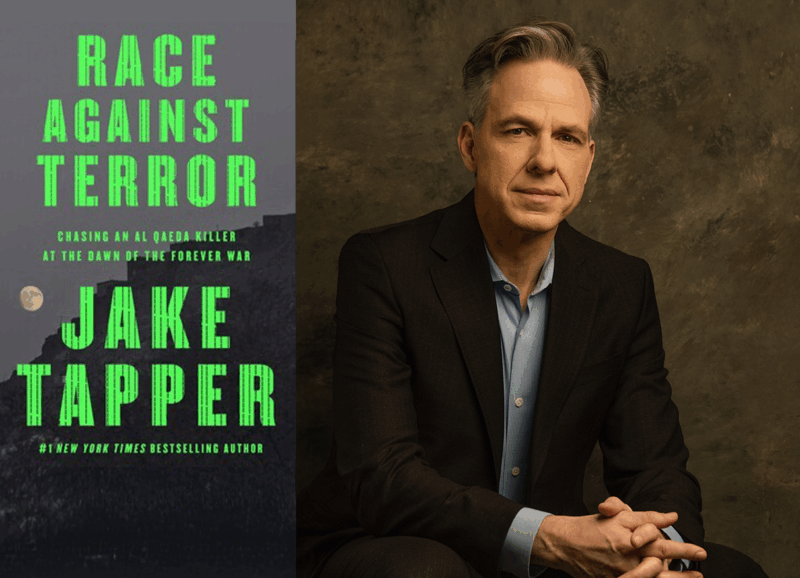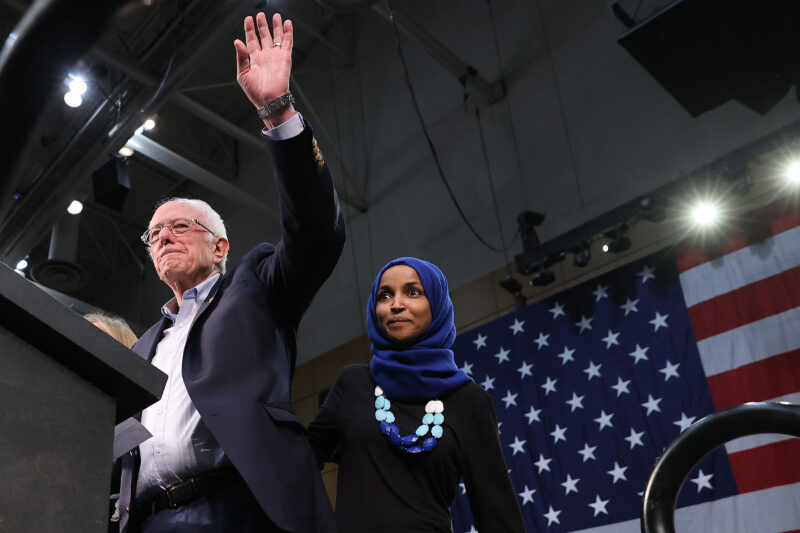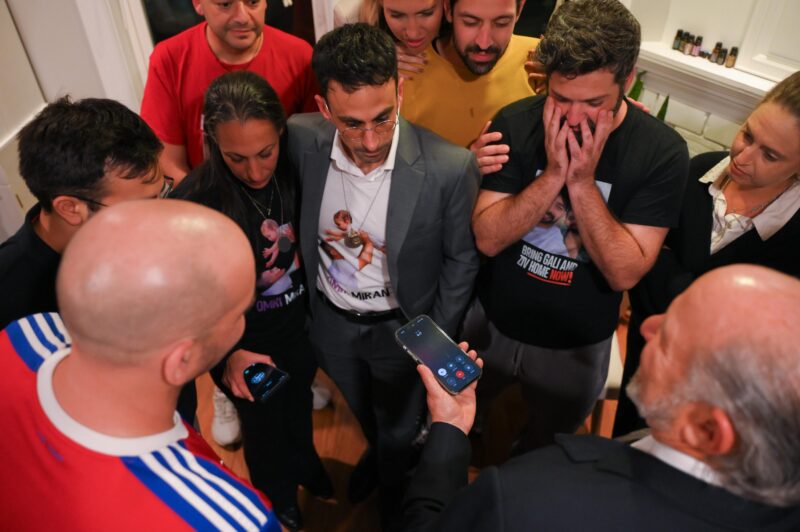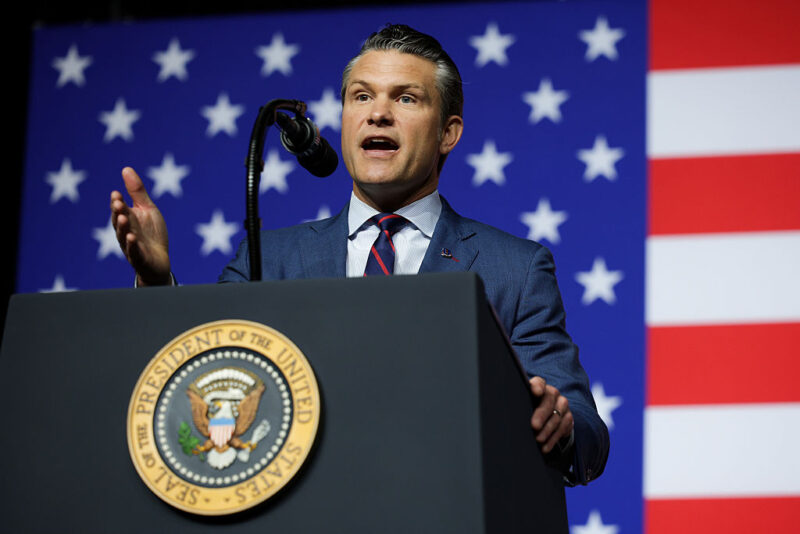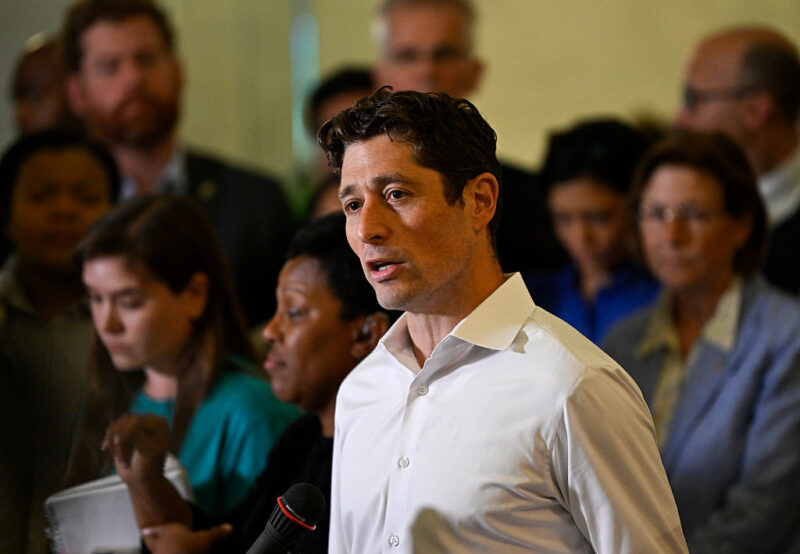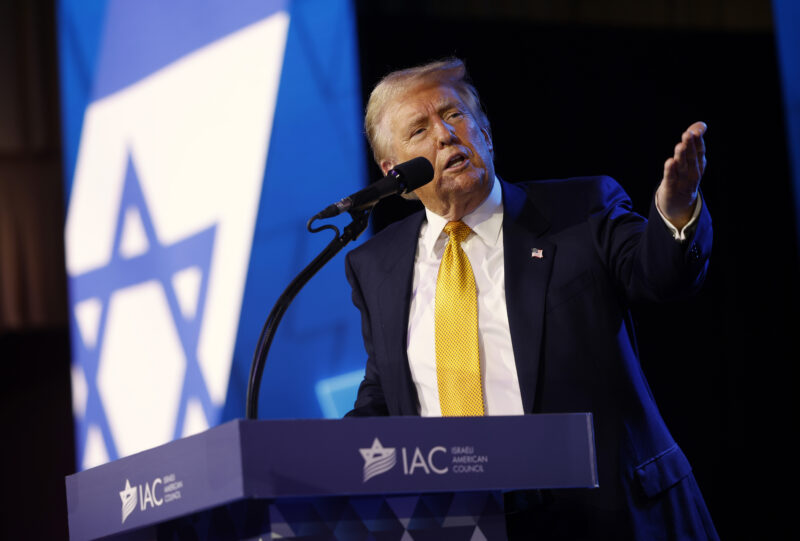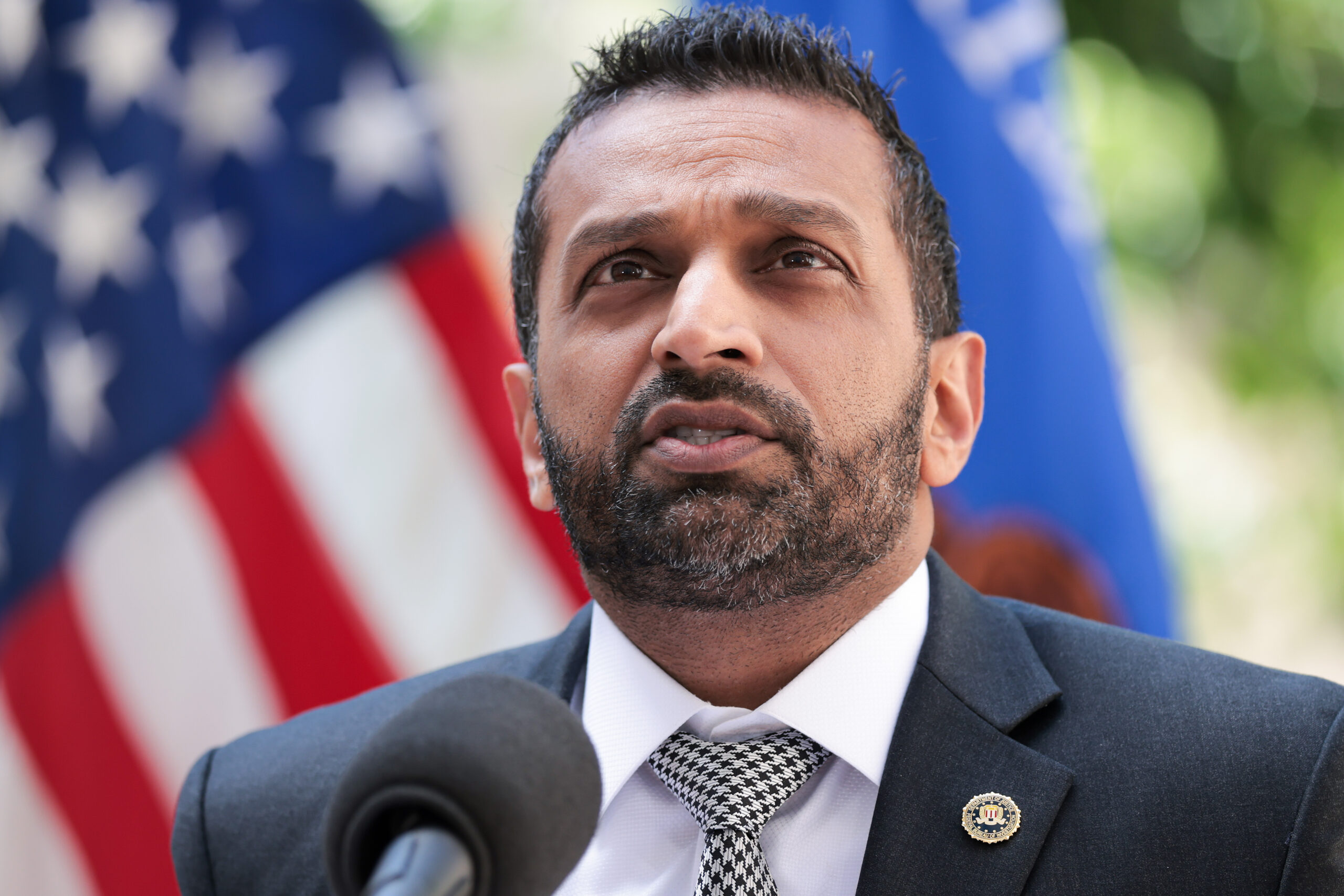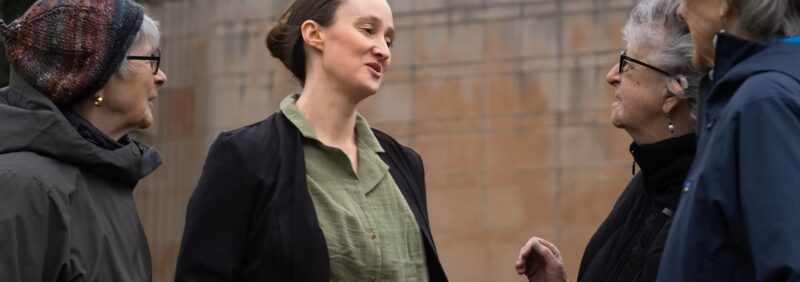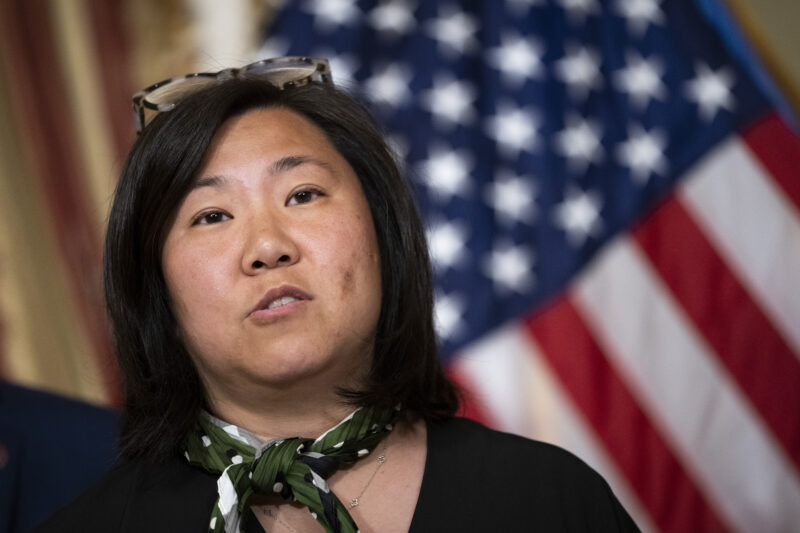U.S. ties to Qatar in spotlight, and under scrutiny, following strategic dialogue
Top diplomats from both countries met in Washington to discuss the countries’ strong ties, while the U.S. relies on Qatar to negotiate a hostage deal with Hamas
Tasos Katopodis/Getty Images
Qatari Prime Minister and Foreign Minister Mohammed Bin Abdulrahman Al Thani (L) and Secretary of State Antony Blinken enter the Treaty Room of the State Department on March 05, 2024 in Washington, DC. Secretary of State Blinken and Qatari Prime Minister Al Thani held strategic dialogue amid Israel-Hamas cease-fire negotiations.
Secretary of State Tony Blinken feted the Qatari prime minister in Washington on Tuesday, hosting the Gulf leader for a day-long meeting discussing the countries’ close partnership.
The sixth annual U.S.-Qatar Strategic Dialogue comes at a tense moment in the Middle East, as Qatar plays a key role in mediating a long-awaited deal for the release of Israeli hostages and a temporary pause in fighting in Gaza. In remarks before the event and a summary issued by the State Department afterward, Blinken spoke highly of his Qatari counterpart, Mohammed bin Abdulrahman Al Thani, who is also Qatar’s prime minister.
“Qatar has been an exceptional partner for the United States,” Blinken said. “Qatar has been critical in the last few years in helping to get Americans who are being arbitrarily detained back home to their families in a whole variety of places.”
Blinken’s warm embrace of Qatar comes as the country has in recent weeks begun to face increasing pressure from Israeli leaders and some American Jewish activists due to its close ties to Hamas, and its inability to reach a second hostage deal as the Israelis held in Gaza approached their 150th day in captivity, which was Tuesday.
“I understand the diplomatic language that was used in the document that was put out by the State Department, talking about the vital commercial, economic, military and political ties. And I’m sure all that is true,” said Ron Halber, the executive director of the Jewish Community Relations Council of Greater Washington. “But underneath that, we have Qatar that dupes the United States and takes advantage of our friendship because of their location and actually funds things that are against the values of Western democracies.”
Since January, the JCRC has hosted semi-regular gatherings outside the Qatari embassy demanding that its leaders do more to pressure Hamas. But Halber, too, is cognizant of the fact that Qatar, for better or worse, plays a key role in the Middle East; he has refrained from using the words “protest” or “rally” to describe the events.
Strategic dialogues are a frequent occurrence at the State Department, and not just for Qatar. Washington hosts similar annual events between top diplomats from the U.S. and scores of other allies, many of which are much less geostrategically significant than Qatar.
“It’s an important partner in many regards, and one that we’ve depended on for years to mediate our relations with some of the more unsavory groups in the region,” David Schenker, a former senior State Department official who attended one of the dialogues during the Trump administration, said of Qatar, which President Joe Biden designated as a “major non-NATO ally” in 2022. Qatar is home to the largest U.S. military base in the Middle East.
But the timing of this year’s meeting — while the Biden administration is urging Hamas to accept a deal — raised flags for some critics of Washington’s ties to Qatar.
“The Biden administration appears to be rewarding Qatar for bad behavior, giving them tremendous benefits that the Qataris have not yet earned. I could imagine postponing this summit until there is another agreement that delivers all the hostages or as many hostages as possible, including all the American hostages,” said Richard Goldberg, a senior advisor at the Foundation for Defense of Democracies and a former national security official in the Trump administration.
Goldberg joins a chorus of hawks in Washington who want to see an end to the close ties between the U.S. and Qatar, citing Qatar’s ties to terror groups including Hamas, the Taliban and al-Qaeda.
“There has long been a need for a moment of choosing where the Qataris have to decide that they are a U.S. ally, and not the modern day Swiss banker to the Nazis who are going to play all sides, take from the United States strategic and economic benefits, and then provide strategic and economic benefits to the enemies of the United States at the same time,” said Goldberg.
Qatar’s key role as a mediator in the Middle East, while Americans are held hostage in Gaza, cements Washington’s reliance on Doha. And while Qatar is actively negotiating a deal, analysts and activists disagree as to whether public pressure on Qatar would help or hurt things for the hostages.
“If our priority objective right now is to get the hostages home, provide for Israeli security and to mitigate civilian harm, and get to a place where a pathway to a two-state solution, some sort of viable solution, is somewhere out there on the horizon, I don’t see how it makes a lot of sense to be calling into question right now the U.S.-Qatar relationship or trying to coerce different facts on the ground vis-a-vis their relationship with Hamas,” said Jonathan Lord, director of the Middle East security program at the Center for a New American Security.
“I think there has always been a question,” noted Schenker, “of how much leverage that Qatar has over Hamas. Of course, Qatar was funding the Palestinian Authority and Gaza, and by extension, Hamas in Gaza, but we remember that was at the behest of the government of Israel.”
Yet while questions on tactics remain, Blinken’s effusive praise for Qatar stood in contrast to an official State Department readout of Blinken’s other major Tuesday meeting — a sit-down with Israeli war cabinet Minister Benny Gantz. The readout said Blinken expressed America’s commitment “to Israel’s right to ensure the October 7 terrorist attacks can never be repeated.” But according to the readout, Blinken also stressed that “Israel must take urgent steps to expand the delivery and distribution of humanitarian aid, including by opening additional crossings” and that Israel needs “a credible and implementable humanitarian plan prior to any major military operation in Rafah.”
The State Department did not place similar public pressure on Qatar.




